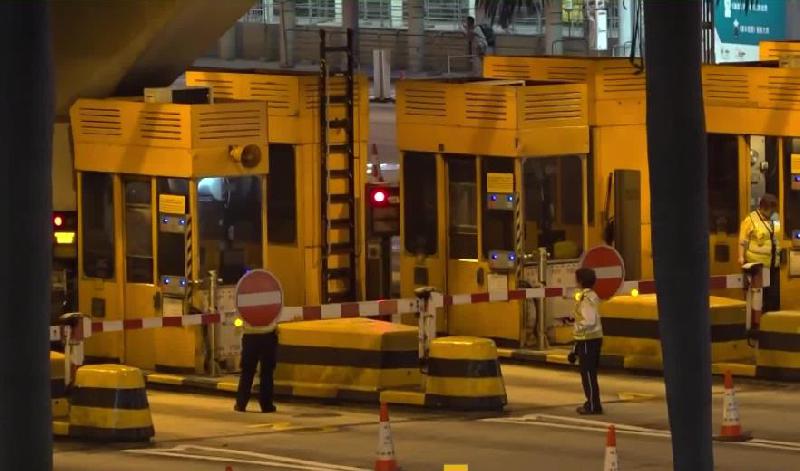
Over the last two months, some Western governments and figures have issued statements regarding Hong Kong and taken actions related to the protests and violence.
HONG KONG, Aug. 20 (Xinhua) -- U.S. Vice President Mike Pence's remarks on Monday, the latest by Western politicians on Hong Kong, has drawn strong opposition from the Chinese side.
The Office of the Commissioner of the Ministry of Foreign Affairs of China in the Hong Kong Special Administrative Region (HKSAR) on Tuesday expressed strong dissatisfaction and objection.
It said some U.S. politicians have clung to the Cold War mentality, hegemonic thinking and the zero-sum bias, confounded right with wrong, and grossly interfered in China's internal affairs by making irresponsible comments. "We strongly deplore and firmly oppose it," the office said.
Starting June 9, demonstrators protested the proposed amendments by the HKSAR government to two ordinances concerning fugitive offenders. Even though the amendments have been completely halted, the opposition made more demands and raised the level of violence.
In the following weeks, tensions escalated as radical protesters used guerrilla tactics to stage strikes, block public transport, damage public facilities, besiege police stations and attack police officers, pushing the city to the brink of chaos.
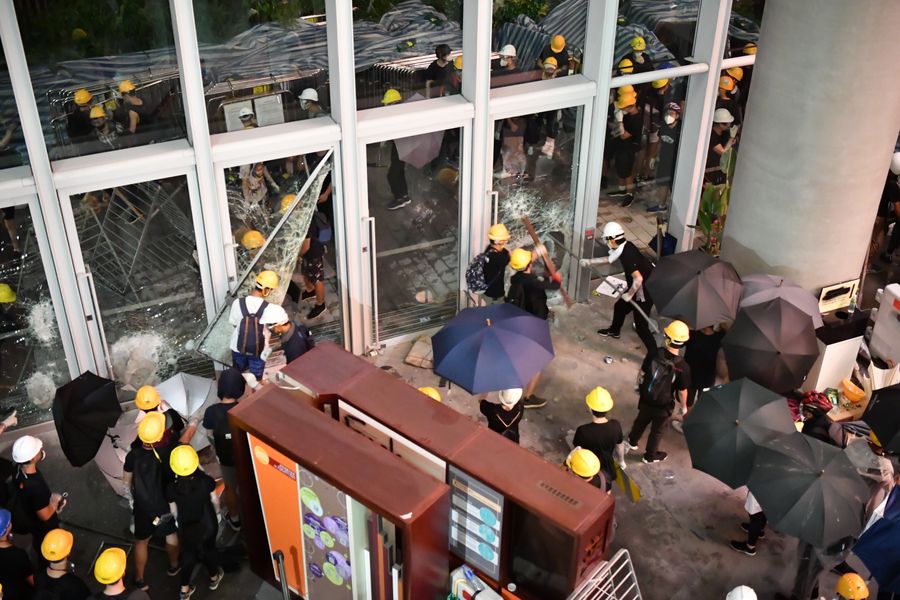
Violent radicals attempt to break and enter the Legislative Council building in Hong Kong, south China, July 1, 2019. (Xinhua)
Over the last two months, some Western governments and figures have issued statements regarding Hong Kong and taken actions related to the protests and violence.
Some politicians hosted Hong Kong opposition leaders and rendered them support on different occasions. Some frequently spoke up to manipulate and radicalize public opinions in Hong Kong. Some advocated violence and clashes in the name of democracy and freedom with a true aim to create disorder and chaos.
On March 21, the U.S. State Department published the 2019 Hong Kong Policy Act Report, in which it made a series of false accusations regarding Hong Kong, saying its autonomy is diminished. The HKSAR government rejected the report as distorting facts and causing confusion.
Days later, U.S. politicians, led by Vice President Mike Pence and Secretary of State Mike Pompeo, held meetings with Hong Kong opposition and backed demonstrations. Hong Kong's former chief secretary Anson Chan Fang On-sang was among the group who traveled to the United States.
On July 8, both Pence and Pompeo met with Hong Kong opposition businessman Jimmy Lai to discuss developments related to the amendments and the status of Hong Kong. The visit was seen as "very unusual for a [non-government] visitor to get that kind of access", according to media reports.
Nancy Pelosi, speaker of the U.S. House of Representatives, repeatedly voiced her support of violence in Hong Kong. In June, she called the demonstrations in Hong Kong "a beautiful sight to behold", when radical protesters were assaulting police officers with bricks, home-made spears, and petrol bombs.
In August, Pelosi made statements to support the protesters, in which she called rioters "courageous" and claimed that Hong Kong police use "aggression and abuse".
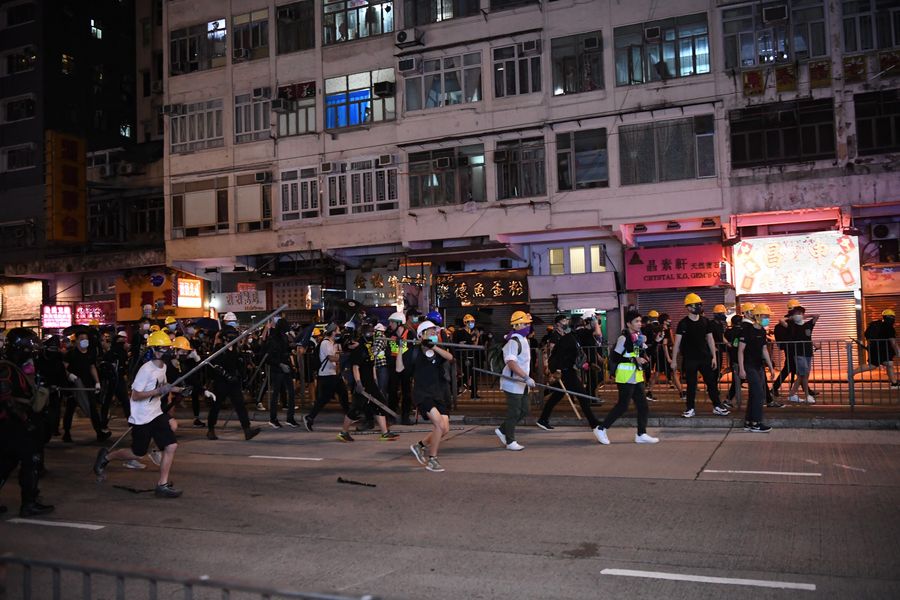
Violent radicals go after a police vehicle in North Point, south China's Hong Hong, Aug. 5, 2019. (Xinhua)
Frontline Hong Kong police officers said they have been under immense pressure.
Chief Superintendent David Jordan, who is British, said the situation on the front line was the most dangerous that he has faced in over 25 years, due to the level of aggression.
"We have been incredibly restrained, and also we are only reactive. I strongly feel that the role and the actions of the Hong Kong police have been as tolerant as any other police force on the planet would have been," he said.
On Aug. 13, Pelosi called for the passing of a so-called Hong Kong Human Rights and Democracy Act to further meddle in Hong Kong affairs.
As she posted the statement, radical protesters plunged the Hong Kong International Airport into chaos on Aug. 13 and 14. Protesters harassed passengers and inflicted severe physical harm to two mainland residents. These extreme behaviors have been widely condemned by the public.
As another piece of evidence of meddling, Julie Eadeh, a diplomat in the U.S. Consulate General in Hong Kong, met with "Hong Kong independence" activists including Joshua Wong Chi-fung and Nathan Law Kwun-chung on Aug. 8.
After their meeting, these activists said they discussed using a U.S. bill to sanction Hong Kong and urging the United States to stop selling equipment to the Hong Kong police.
During the protests, radical protesters waved British and U.S. flags when they vandalized road infrastructure and attacked police on duty.
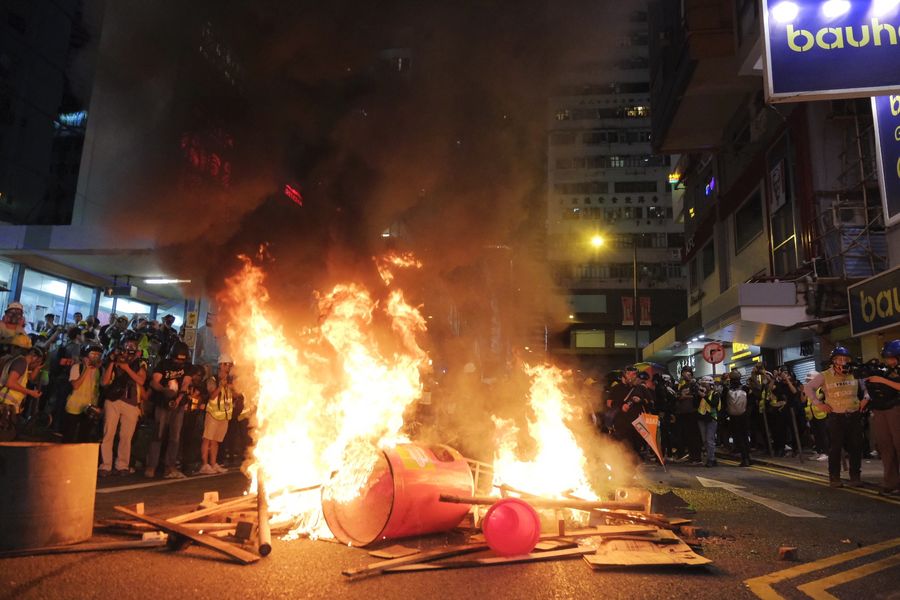
Violent radicals set fires after blocking a road in Causeway Bay, south China's Hong Kong, Aug. 4, 2019. (Xinhua)
On Aug. 13, the European External Action Service issued a statement on the situation in Hong Kong. On Aug. 17, EU's High Representative for Foreign Affairs and Security Policy Federica Mogherini and Canadian Foreign Minister Chrystia Freeland issued a joint statement on Hong Kong.
Both statements, misleading and incorrect, have been refuted by the Chinese side.
These meetings and words are "irresponsible remarks" and "wrong signals" to fan protests and pressure the government, observers in Hong Kong said.
"Whenever the Hong Kong opposition seemed weak, officials and advocates in the United States jumped out to comment and called on them to continue," said Chan Yung, an HKSAR deputy to the National People's Congress and vice-chairperson of Democratic Alliance for the Betterment and Progress of Hong Kong.
"The intervention of external forces has only complicated matters and made the situation precarious. The United States wants to use Hong Kong issues as a bargaining chip with China. That plan is not going to work," he said.
Observers said what has happened in Hong Kong bears the feature of a color revolution that is aimed at overthrowing the government.
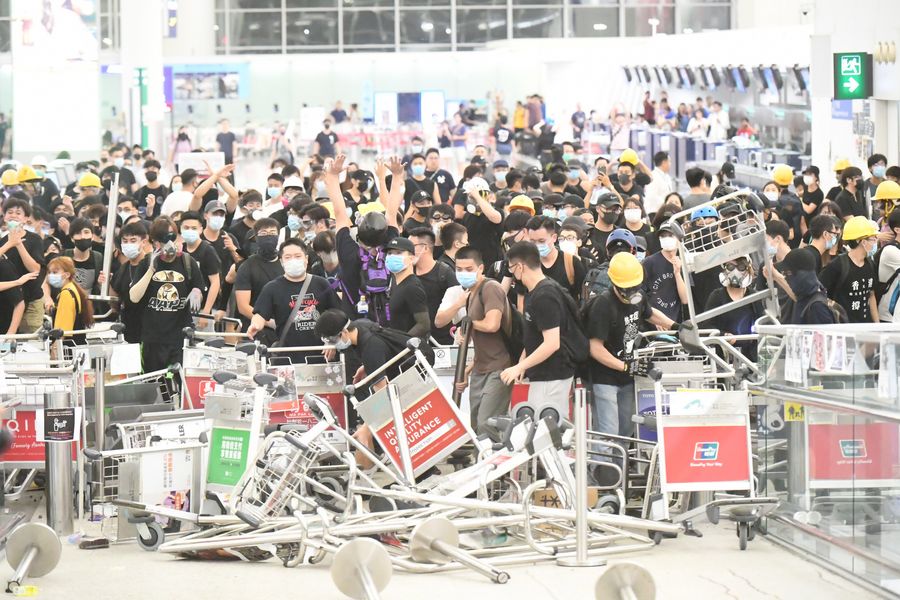
Violent radicals block a passage at Hong Kong International Airport in south China's Hong Kong, Aug. 13, 2019. (Xinhua)
"It is an organized and coordinated version of a color revolution that is aimed to snatch the governance authority of Hong Kong through resorting to violence," said Yiu Chi-Shing, chairman of Hong Kong Association for Promotion of Peaceful Reunification of China.
"Look at the regions hurt by color revolutions, they left nothing but chaos. We should prevent Hong Kong from falling into the trap," he said.
Begging for foreign influence and intervention is a dangerous move that challenges the red line of the "one country, two systems" principle, observers and authorities said.
"I advise those politicians who speak beautiful words but spread seeds of social hatred and discord to be responsible and clear-headed. Their tricks will never succeed," said Yang Guang, spokesperson for the Hong Kong and Macao Affairs Office of the State Council.
















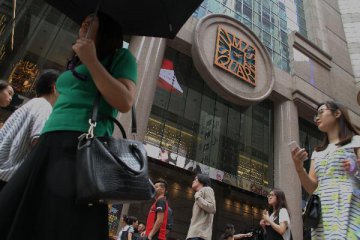
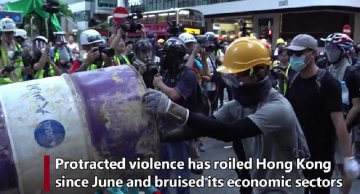
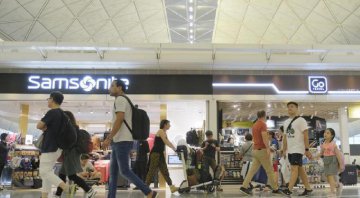



Latest comments